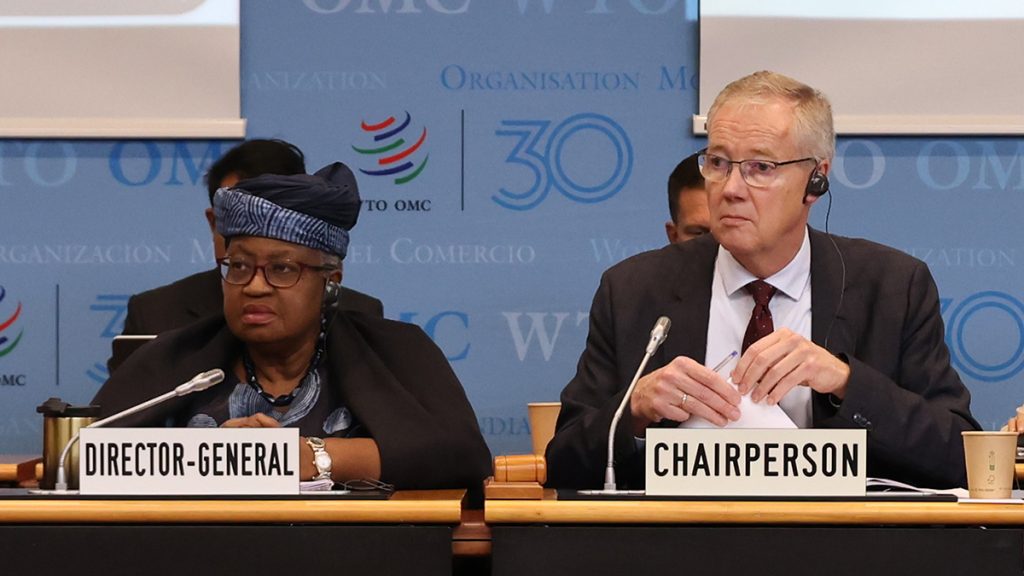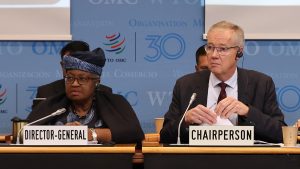
DG Okonjo-Iweala: Members need to “continue to be constructive” to achieve outcomes
DG Okonjo-Iweala: Members need to “continue to be constructive” to achieve outcomes

Director-General Ngozi Okonjo-Iweala urged WTO members on 15 October to “continue to be constructive” in addressing outstanding issues on the WTO work agenda such as agriculture, fisheries subsidies, development and dispute settlement reform so that concrete outcomes can be achieved. She spoke in her capacity as Chair of the Trade Negotiations Committee at a meeting of the WTO’s General Council.
“We need to continue to be constructive and to keep in our sights that we are here to achieve outcomes,” DG Okonjo-Iweala told members, citing positive discussions on several issues under negotiation.
On agriculture, the DG said she was grateful for the positive discussion that took place at the Trade Negotiations Committee meeting on 10 October, which focused on advancing the agriculture negotiations.
The DG said she, the General Council chair — Ambassador Petter Ølberg (Norway) — and the chair of the agriculture negotiations — Ambassador Alparslan Acarsoy (Türkiye) — would be meeting with members shortly in order to respond to some of the questions posed during the meeting and find an agreement on a process for moving the negotiations forward.
“We can’t accept this important negotiation to be stalemated,” the DG said. “It’s been so for two and a half decades … let’s try and take it very seriously and find a way through.”
On fisheries subsidies, the DG welcomed progress on acceptances of the Agreement on Fisheries Subsidies concluded in 2022 and noted that only 25 more acceptances are needed to ensure entry into force of the Agreement, with a number of additional acceptances expected in the days and weeks ahead.
She also underlined that members were “almost there” with regards to a deal on the second part of the Agreement, which aims to address subsidies contributing to overcapacity and overfishing. “There are some issues, not many, and some members who need more work to be done so that we can push towards a conclusion,” she said.
On development, the DG said she was happy that the work has resumed on special and differential treatment proposals at an 11 October meeting of the Committee on Trade and Development. To keep up the momentum and to work towards more concrete results, members should achieve as many results as possible in Geneva rather than waiting for the next Ministerial Conference, she told members.
On dispute settlement reform, the DG noted that reform of the system was a “collective desire of every member in this room,” the importance of which was underlined at recent meetings of the Group of 20 foreign ministers and the UN General Assembly meeting in New York.
She thanked the facilitator and co-coordinators of the reform talks for their efforts. “I hope we can continue to push along the work,” she said. “I know it’s not easy, and it requires a lot of listening, but slow and steady is what we need until we can get to where we want.”
On investment facilitation for development (IFD), DG Okonjo-Iweala noted the continued discussions on the proponents’ request to incorporate the IFD Agreement into the WTO framework. The DG said she welcomed the tone of the exchanges at the General Council meeting and said she detected a “willingness to dialogue” and continue to find a solution among the membership.


